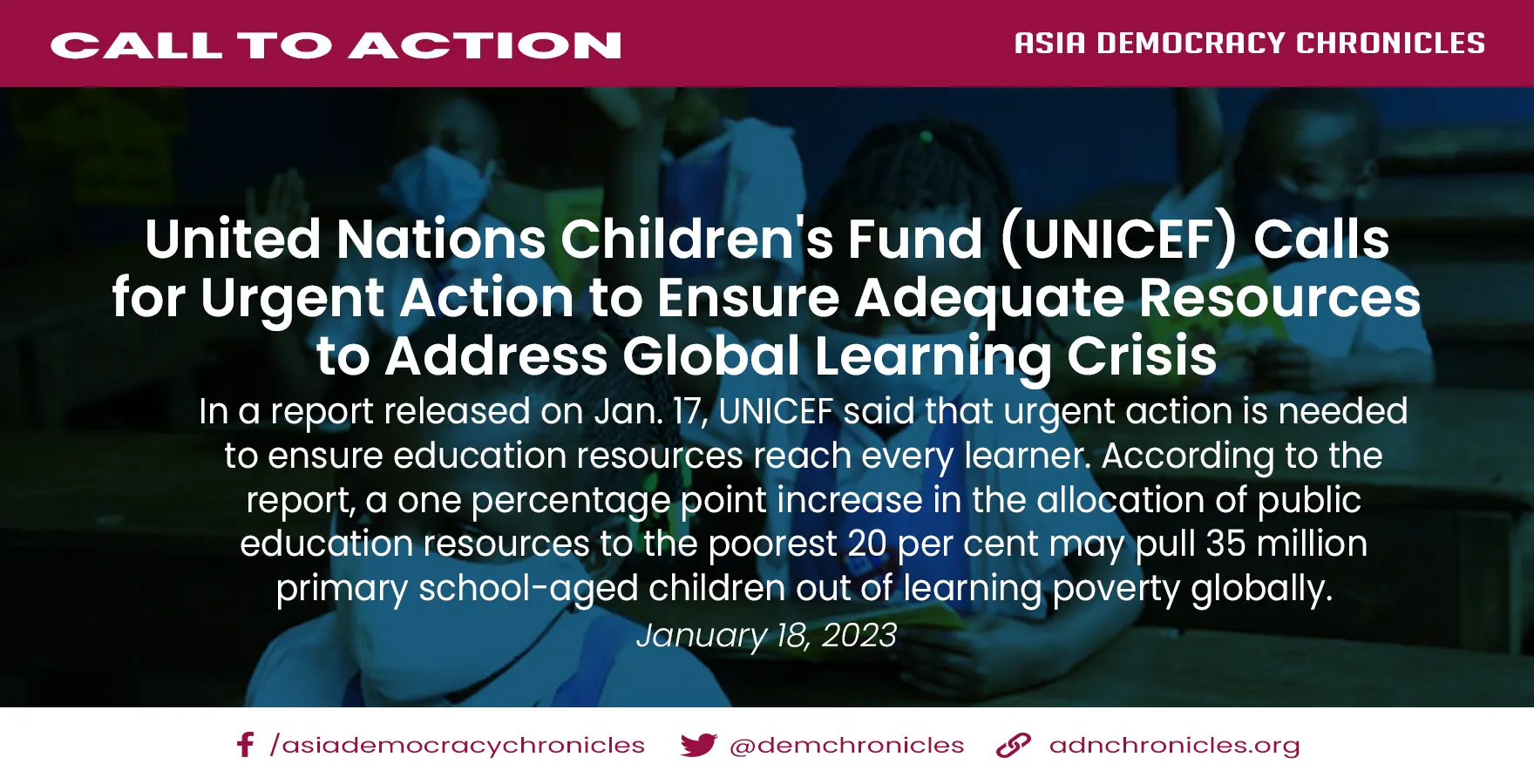|
Getting your Trinity Audio player ready...
|
18 January 2023
NEW YORK, 17 January 2023 – Children from the poorest households benefit the least from national public education funding, UNICEF said in a new report released today, while calling for additional – and more equitable – investment to lift millions of children out of a learning crisis.
The report, Transforming Education with Equitable Financing, notes that on average, the poorest quintile of learners benefits from only 16 per cent of public funding for education, compared to the richest, who benefit from 28 per cent. Among low-income countries, only 11 per cent of public education funding goes to the poorest learners, while 42 per cent goes to the richest.
“We are failing children. Too many education systems around the world are investing the least in those children who need it the most,” said UNICEF Executive Director Catherine Russell. “Investing in the education of the poorest children is the most cost-effective way to ensure the future for children, communities and countries. True progress can only come when we invest in every child, everywhere.”
The report examines data on government spending across pre-primary, primary, secondary, and tertiary education from 102 countries. It found that a one percentage point increase in the allocation of public education resources to the poorest 20 per cent may pull 35 million primary school-aged children out of learning poverty. The study noted that around the world, public education spending is more likely to reach learners from wealthier households in both low- and middle-income countries.
The gap is most pronounced among low-income countries. In several examples, the data showed that learners from the richest households benefit from over six times the amount of public education funding compared to the poorest. Meanwhile, in middle-income countries, the richest learners in places like Côte d’Ivoire and Senegal receive around four times more public education spending than the poorest. Though the gap is smaller in high-income countries, with the richest usually benefitting from 1.1 to 1.6 times as much public education spending as the poorest, France and Uruguay fall at the higher end of the gap.
According to the report, children living in poverty are less likely to have access to school and drop out sooner. In addition, children from poor households are less represented in higher levels of education, which receive much higher public education spending per capita. They’re also more likely to live in remote and rural areas that are generally underserved and on the wrong side of the digital divide.
Even before the COVID-19 pandemic, education systems around the world were largely failing children, with hundreds of millions of students attending school but not grasping basic reading and mathematics skills. Recent estimates show that two-thirds of all 10-year-olds globally are unable to read and understand a simple story.
According to the report, a key step to addressing the learning crisis is for governments to provide equitable financing and prioritize public education resources, including increasingly focusing on foundational learning. This entails securing public funding for pre-primary and primary education for all and targeting the poor and marginalized at higher levels of education.
Other findings from the report include:
- In the past decade, public education spending has become more equitable in 60 per cent of countries with data.
- However, nearly one-third of countries spend less than 15 per cent of their public education funding on the poorest. Among low-income countries, this share of countries is strikingly high at 80 per cent.
- In 1 out of 10 countries, learners from the richest households receive four or more times the amount of public education spending compared to learners from the poorest households in 10 per cent of countries.
- Appeals for education in emergencies often receive just 10 to 30 per cent of the amounts needed, with significant disparities across countries and regions.
Urgent action is needed to ensure education resources reach every learner. The report sets out four key recommendations: unlocking pro-equity public financing to education; prioritizing public funding to foundational learning; monitoring and ensuring equitable education aid allocation in development and humanitarian contexts; and investing in innovative ways to deliver education. #



















